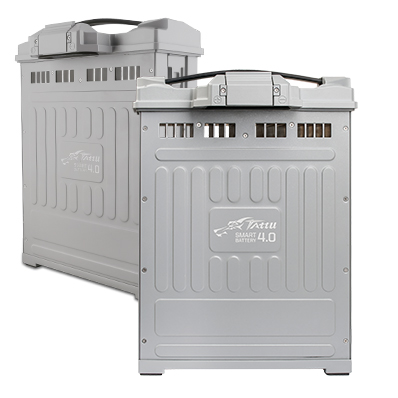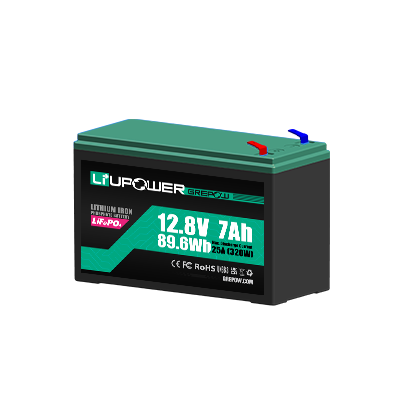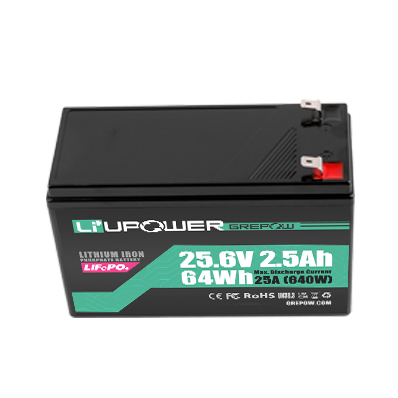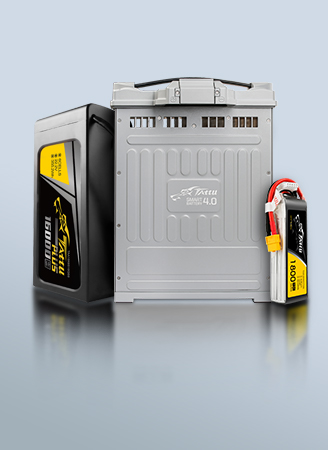Frequently Asked Questions for UPS Battery Replacement
Uninterruptible Power Supply (UPS) systems are a crucial component in safeguarding electronic devices and data against power disruptions. However, over time, the batteries in UPS units may require replacement. This article addresses some common questions regarding UPS battery replacement.
Is it worth replacing batteries in UPS?
In fact, it depends. The batteries are the lifeline of the UPS, providing power during electrical outages or fluctuations. By replacing the batteries, you ensure that your UPS continues to function effectively, protecting your connected equipment and preventing data loss. Replace UPS batteries is more cost-effective than buying a new one. But if your UPS has become flaky in some fashion, or it doesn't have the features that you want. Then you should buy a new UPS.

How do I know if my UPS battery needs replacing?
The battery in a UPS is a crucial component, and over time, it may degrade and require replacement. Here are some signs that indicate your UPS battery might need replacing:
◆Audible Alarms: UPS units often emit a beeping sound to alert users when the battery is low or needs replacement.
◆Reduced Runtime: If your UPS provides significantly less backup time than before, it's a sign that the battery capacity has diminished.
◆Visual Indicators: Some UPS models have LED indicators that change color or flash to indicate battery health. Refer to your UPS manual for specific information.
◆Age: VRLA UPS batteries typically have a lifespan of 3-5 years. If your UPS is older than that, consider replacing the batteries preemptively.
What is the life expectancy of a UPS battery?
The life expectancy of UPS batteries can vary based on the type of battery chemistry used. Although alternatives such as lithium-ion battery are becoming more popular and commercially viable, the majority of UPS today still use traditional sealed lead-acid (SLA) batteries. SLA batteries typically have a life expectancy of 3 to 5 years. SLA batteries are often more cost-effective than lithium-ion batteries, making them a common choice for UPS applications. Lithium-ion batteries generally have a longer life expectancy compared to SLA batteries. They can last 5 to 10 years or more, depending on usage and environmental conditions. Lithium-ion batteries offer a higher energy density, meaning they can provide more power in a smaller and lighter package.
Why do UPS batteries fail so quickly?
UPS batteries can fail prematurely for a variety of reasons. Understanding these factors can help users take appropriate measures to maximize the lifespan of UPS batteries. Here are some common reasons why UPS batteries might fail quickly:
◆Temperature: High temperatures can accelerate chemical reactions within the battery, leading to a shorter lifespan.
◆Overcharging/Undercharging: Improper charging can cause stress on the battery, leading to premature failure.
◆Old Age: As batteries age, their ability to hold a charge diminishes.
◆Manufacturing Quality: Lower quality batteries may have a shorter lifespan than high-quality ones.
How often do you need to replace UPS battery?
The frequency of UPS battery replacement depends on factors like usage, environmental conditions, and battery quality. On average, replacement every 3 to 5 years is recommended. Regularly monitoring battery health and addressing warning signs can help in timely replacements.
How much does it cost for UPS battery replacement?
The cost of UPS battery replacement varies depending on factors like the UPS model, battery capacity, and brand. As a rough estimate, replacement batteries can range from $50 to $200 or more. It's recommended to check with the UPS manufacturer or authorized dealers for specific replacement batteries compatible with your UPS model. Additionally, consider whether you'll be replacing the battery yourself or hiring a professional, as installation costs can also contribute to the overall expense. When replacing UPS batteries, it's important to choose batteries that meet the specifications of your UPS, adhere to safety guidelines, and follow the manufacturer's recommendations.
What is the procedure for UPS battery replacement?
The procedure for UPS battery replacement can vary among different models. However, a general guideline includes:
Turn off and unplug the UPS: Ensure the UPS is powered down and disconnected from the electrical source.
◆Access the battery compartment: Open the UPS and locate the battery compartment.
◆Remove old batteries: Disconnect the old batteries, following the manufacturer's instructions. Handle batteries carefully and dispose of them according to local regulations.
◆Install new batteries: Insert the new batteries, making sure to connect them correctly.
◆Close the battery compartment: Securely close the UPS cover.
◆Power up the UPS: Plug in the UPS and turn it on. Monitor for any warning lights or alarms.
Always refer to the specific UPS manual for detailed instructions on battery replacement to ensure a safe and effective procedure.
Conclusion
In conclusion, understanding the importance of UPS battery replacement and being aware of the signs and procedures can help users maintain the reliability of their UPS systems and safeguard their valuable electronics. Regular monitoring and timely replacement contribute to the overall effectiveness of the UPS in providing uninterrupted power protection. As a global leader in lithium battery cell manufacturing, Grepow offers professional customization solutions for 12V and 24V UPS battery and Battery Management Systems (BMS), catering to your specific application requirements. If you have any questions or needs, please feel free to contact us at info@grepow.com.
Related Articles:
Related Articles
-

High Voltage Batteries: Basics & Applications Guide
2025-02-28 -

Semi Solid State Battery vs Lifepo4 Battery: What's the Difference?
2025-01-20 -

How Drone Light Shows Are Created and Key Battery Power Requirements
2024-10-21

















































